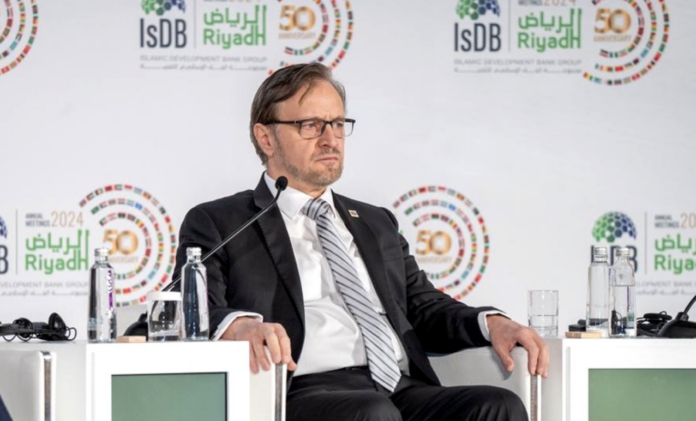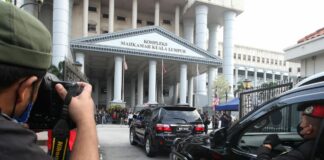RIYADH, April 28 – It is time for Muslim countries to start exploring the broader range of instruments available in Islamic finance, particularly in aiding middle-income and low-income countries, said Islamic Financial Services Board (IFSB) secretary-general Dr. Ghiath Shabsigh.
He said the broader area can be explored by not only the multilateral development banks (MDBs) like central banks but also the private sector and international organisations.
“We have to think of how can we offer these countries, (so we need to explore) various options…can we provide investors with alternative options? By doing this, can we generate more funding, more tractability, greater trust in the system, and reduce costs?
“At the end of the day, and ultimately, hopefully, InsyaAllah everyone is better off,” he said during a panellist session titled “Leveraging Islamic Finance for Developing Sustainable and Resilient Infrastructure” on the first day of the 2024 Islamic Development Bank (IsDB) Group’s Annual Meetings and Golden Jubilee Celebration here on Sunday.
Before his recent appointment as the fourth secretary-general of the IFSB, Shabsigh served as the assistant director at the International Monetary Fund’s (IMF) monetary and capital markets department where he played a pivotal role in driving IMF’s central banking and fintech initiatives.
During the 90-minute dialogue session today, Shabsigh, one of the four panellists, said Islamic finance has made significant contributions to global finance over the years, during which it expanded the spectrum of financial instruments available to investors.
He said it created solid financing debt instruments akin to those found in the conventional sector.
“While it is primarily equity type (financing) based on profit sharing (principle), in between, it also offers a whole range of hybrid instruments that provide different profiles in terms of risk, liquidity or returns to satisfy the different niches of investor preferences.
“This is very important because it broadens the horizons of de-risking options available to investors, thereby reducing overall risk, and encourages more investors to participate in the market.
“So, this is something that investors of finance can bring to the table. It’s a major contribution to finance but that would require cooperation from the regulators,” he said, adding that the intention is for the betterment of humanity in general.
“At the end of the day, with the deeper financial markets and broader options, investors who want investment will be happy and everybody will feel slightly better,” he said, adding that trust is a keyword when it comes to finance.
Meanwhile, during his opening remarks today, IsDB president Dr Muhammad Al Jasser said there is an estimation of a potential funding gap of US$15 trillion (US$1=RM4.74) by 2030 for infrastructure projects worldwide.
“Institutional investors, including large pension funds, government retirement funds, and global asset managers, increasingly seek unlisted infrastructure assets for their portfolios. IsDB’s recent strategic realignment prioritises ‘resilient recovery’ and ‘green economic growth’ and its focus on sustainable infrastructure financing helps bring bankable infrastructure projects.
“Islamic finance, with its focus on real sector and asset-based financing, is well-suited for infrastructure financing, which involves long-term investments in tangible assets,” he said.
Muhammad Al Jasser said sukuk, the primary financial instrument in Islamic capital markets, holds significant potential for boosting investment in infrastructure projects, as evidenced by the growing global sukuk market.
Today’s discussion addressed among others, what institutional investors look for when investing in infrastructure projects and explores ways to attract asset managers for funding.
















